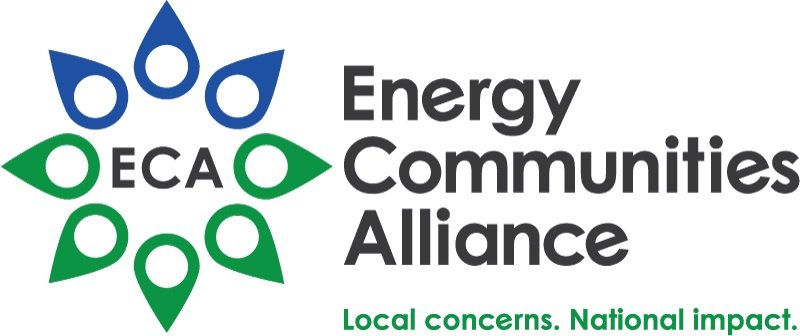ECA Returns to its Roots – Hosts WIPP Tour and Peer Exchange in Carlsbad, NM
On May 4-5, the Energy Communities Alliance (ECA) held a Peer Exchange in Carlsbad, New Mexico. The conference was a homecoming of sorts; the city is home to former Carlsbad Mayor and ECA Chair Gary Perkowski, who helped found ECA over 20 years ago.
Located in Eddy County, Carlsbad sits 26 miles northwest of the Waste Isolation Pilot Plant (WIPP) site, the nation's only deep geologic long-lived radioactive waste repository. Authorized by Congress in 1979, Carlsbad leadership pushed hard for the site to be located nearby. Since its construction in the 1980s and receipt of its first shipment of waste in 1999, WIPP has had intergenerational support, and employed an intergenerational workforce, from Carlsbad and the surrounding community.
Last November, WIPP reached a significant milestone, receiving its 13,000 shipment of transuranic waste, and just this month, the Environmental Protection Agency recertified the facility, stating “[WIPP]” continues to be a cornerstone in the nation’s effort to responsibly dispose of radioactive waste,” in a press release.
Participants of the Peer Exchange learned about the history and community support for WIPP from former Carlsbad Mayor Bob Forrest and Dr. Frank Hansen, retired senior scientist at Sandia National Laboratories. Reinhard Knerr, manager of the Carlsbad Field Office, and Sean Dunagan, president and project manager of Nuclear Waste Partnership, LLC – the site’s contractor – provided insightful remarks on the future of WIPP.
WIPP stands a testament to what can be accomplished in the cleanup program when the community, the Department of Energy (DOE), the contractor, and other parties come together to solve the crucial question of what to do with our nation’s waste.
Part of solving this question involves ensuring communities understand the waste acceptance criteria (WAC) at sites, and the role it has in determining any disposal mission. Attendees had the opportunity to learn more about the WIPP WAC at the meeting, as well as community involvement on the WAC at the Oak Ridge site.
The topic of community involvement carried through many other sessions at the Peer Exchange. Panelists spoke to the need for collaboration between frontline communities, contractors, DOE, and other impacted parties for developing community support for DOE facilities. Recommendations also included collaborating with universities to bolster STEM initiatives and preparing the future workforce.
The benefits of relationship-building and respect – from the perspective of all parties – were also highlighted across various sessions. EM Chief of Staff Michael Nartker noted that the strength of the relationship with the local community at EM sites is essential to the success of the cleanup mission.
In building support for sites among their Congressional delegations, local government participants were encouraged to “go to DC, be bold in what you say, and share with them what you know to be true.”
DOE leadership was encouraged to ensure they seek out the whole picture, getting responses from all intergovernmental groups at sites, when making decisions that impact the complex as a whole.
Participants of the conference also heard industry and community insights on the future of policy and licensing for interim storage, spent nuclear fuel, and defense high-level waste, as well as discussion on DOE priorities for the EM program.
One such priority for all ECA members is the roll-out of funding under the Bipartisan Infrastructure Law for local governments and communities. Additional information on how communities can receive this funding may be found using a new resource on the ECA webpage, which explains each relevant program’s recipients, eligible uses, and timelines for when interested parties can apply for funding.
ECA greatly appreciates the opportunity to return to its roots in Carlsbad, and extends our gratitude to all speakers, panelists, and attendees of the Peer Exchange. We especially want to thank City Councilor JJ Chavez, former County Commissioner Susan Crockett, Jack Volpato, and the rest of the team in Carlsbad who helped make this conference a success!
